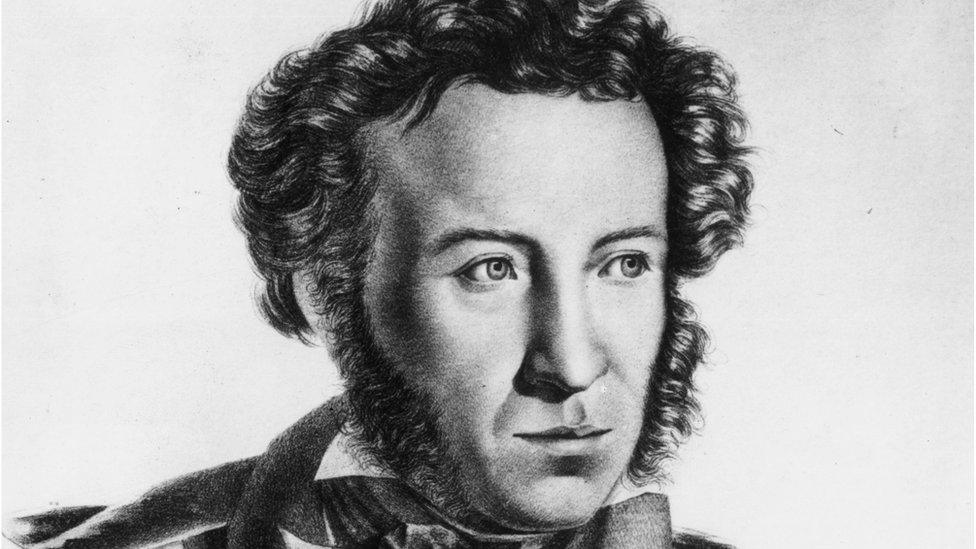Why a 19th Century Russian poet is going viral on Facebook
- Published

Russian poet Alexander Pushkin is at the centre of a social media storm
A comment by a prominent campaigner has touched off a fevered debate over Russian influence in a former Soviet republic.
It's not so often that Romantic poets set social media alight. But that's exactly what happened when the subject of Alexander Pushkin came up on a Russian TV programme.
The interviewee, Alexei Navalny, is an anti-corruption campaigner who has long been one of the leading figures opposing Russian President Vladimir Putin.
In a conversation on the independent Russian Dozhd TV channel, Navalny and presenter Ksenia Sobchak suggested that Pushkin - one of Russia's great cultural figures - was largely unknown outside his native country. In particular, they said, people in Uzbekistan were ignorant of the great poet.
The comments triggered a huge debate within Uzbekistan, with many angrily denouncing the Russians.
In one Uzbek Facebook group, videos of children reading Pushkin's poems went viral. Many pointed out that not only are his works widely read in Uzbekistan, but the poet has a metro station, squares and parks named after him.
One angry Facebook user, external called Navalny and the TV host "animals" and defended his country's cultural knowledge "We speak Russian better than people in some Russian-speaking regions!"

Several videos reacting to Navalny's comments were posted by Uzbeks on the Facebook page Uzbek MDK
Other Uzbeks, however, lashed out at their compatriots for expecting validation from Russians and argued that instead of showing off knowledge of a foreign culture, they should appreciate things closer to home.
One user denounced what he called "stylish Uzbeks".
"Your knowledge of the Russian language does not develop Uzbekistan and Pushkin's poems do not bring well-being to your families," he said, external. "You should educate your children properly and teach them their own history."

Visit BBC Trending on Facebook, external

Another put it more succinctly: "We do not have to know what they want us to know!"
The argument, which played out on the popular Facebook group "Uzbek MKD, external" and other forums, demonstrates how the cultural influence of the Soviet Union still looms large in Central Asia, nearly three decades after the breakup of the USSR.
Uzbek is the country's official language, but Russian is still widely used, including in the capital Tashkent, where learning Russian is seen as a status symbol and can improve a student's future employment prospects.
And in a country plagued by high unemployment and a weak economy, many Uzbeks go to Russia to work as migrant labourers, to send money back to their families.
You can follow BBC Trending on Twitter @BBCtrending, external, and find us on Facebook, external. All our stories are at bbc.com/trending.